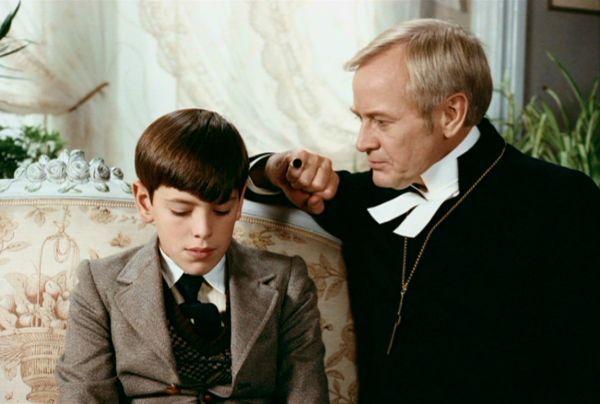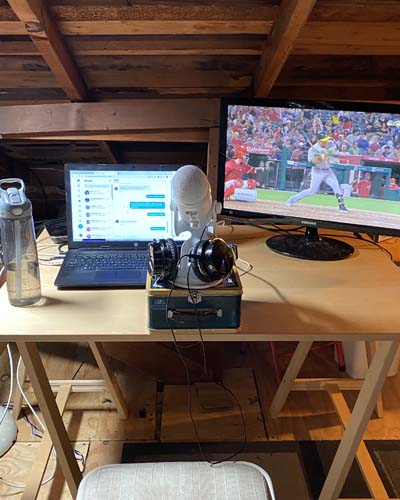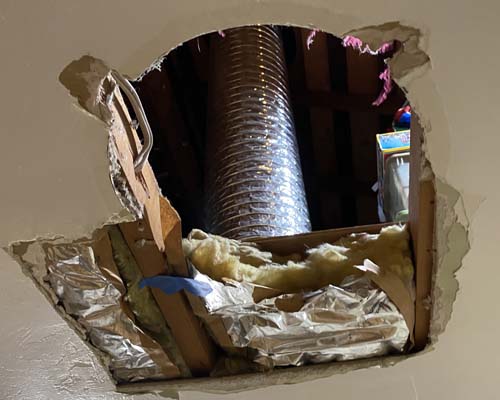I’m going to retell a story here that my mother told me. I am absolutely astonished that this story from half a world away and three-quarters of a lifetime ago would ever have any relevance for an Oakland A’s blog, but here we are.
If you’ve followed me at all on these Internets, you know that I am of Swedish descent. My mother, however, was actually born in Norway. Her first language was Norwegian. When she was about five years old, her parents moved to take over a general store just across the Swedish-Norwegian border in a small village called Hällestrand. My mother became a Swede instead.
If you look at a map of Scandinavia, you’ll see that border between Norway and Sweden runs almost entirely in a north-south direction, except for a little piece at the bottom of Norway that does a turn to the west. My mother’s family comes from this area, where the border turns. My grandparents came from large families, so my mom had lots of aunts and uncles and cousins. I remember visiting these relatives as a child. Some of them lived on the Swedish side of the border, and others lived on the Norwegian side. They lived in two different countries, and spoke two different (but mutually intelligible) languages, but none of them lived much more than an hour’s drive or two from each other. When my mom was growing up, they would take trips to visit these relatives often.
Or they did, until two days before my mom’s 13th birthday, Nazi Germany invaded Norway.
The Nazis occupied Norway for the next five years. For five years, although they live mere miles from each other, the family was cut in half, some of them living in relative freedom in Sweden, the others forced to live with the flag of the swastika flying overhead, symbol of one of the most evil regimes in the history of mankind.
The Norwegian side of my family, I am proud to say, did not roll over for the Nazi invaders. Many of them joined the Norwegian resistance, helping to sabotage what they could, resolving to never make anything easy for their oppressors.
Apparently my mother’s grandparents, my great-grandparents, took part in this resistance. I don’t know what exactly they did, but at some point in 1943 or 1944, they decided it became too dangerous for them to stay in Norway. Although communication was very limited, somehow they got word to my grandfather, who met them as the snuck across the border with just the clothes they were wearing. They spent the rest of the war living with my mom’s family in Sweden.
The generation of people who lived through that experience are almost all no longer with us. My mom, now 93 years old, is the only one I know of who remembers World War II who is left on that side of my family. When they go, they take something that makes those stories real with them.
World War II ended 75 years ago. With that distance, the Nazis can seem preposterous. They can become cartoon characters of evil, not something real that real people lived through for five years, if they lived through it at all. And I’ll admit, I’ve held a detached, arm’s-length understanding of Nazis, too. Most of my experience with Nazis growing up was watching dozens of episodes of Hogan’s Heroes.
My mom had a cousin in Norway named Else who was the same age as her. They were very close. Else had been in the resistance movement, too. She passed away a few years ago. She was a small, energetic, upbeat, lively woman, very kind and sweet and generous. I remember the last time I visited her before she died. She told a story how she had recently visited a WWII museum in northern Norway. In this museum, there were some young German tourists, probably in their teens or early twenties. As she told it, these young students were being loud and boisterous, sometimes even joking and laughing, instead of being quiet and solemn.
Else was offended. Offended. Her eyes, which were normally so bright and welcoming, turned cold and hard and fierce and determined.
I’ll never forget that look in her eyes. That look made WWII feel more real to me than any book, film, lecture, TV documentary or essay ever could. Those eyes made it clear: This is not funny. Not to her. You. Absolutely. Do. Not. Joke. About. Nazis.
Yesterday, the Oakland A’s beat the Texas Rangers, 6-4. In a normal year, players coming off the field after are victory are greeted with a line of high fives. But because of the pandemic, however, high fives are not allowed this year. So the A’s have taken to greeting each other with forearm taps.
Everyone on the team held their arms out to the side to greet the incoming players with bent elbows. Everyone, that is, except A’s bench coach Ryan Christenson, who held his arm out straight, in a fashion that was identical to a Nazi “Heil Hitler” arm salute.
A’s closer Liam Hendriks, who is from Australia, immediately noticed this as he passed by, grabbed Christenson’s arm, and told him to bend the elbow. Christenson then turned around, faced the other direction, and then threw out the arm straight again.
There are two ways to interpret those events. One is that Christenson is a white supremacist, and intended those straight arms as a Nazi salute, either seriously or jokingly. The other is that he didn’t realize he was making a Nazi salute, and that when he turned around and did it again, he was confused why Hendriks had admonished him for it, then did it again to figure out why, and only then did the light bulb go on and he realized what a stupid thing he had done.
Obviously, Christenson claimed the latter, and apologized.
Is an apology enough? Or should Christenson be suspended, or fired? It largely depends on which of those two interpretations you believe.
What do you think? Answer that question to yourself, and hold it in mind, because there’s one more part of my mom’s story I want to tell.
The Nazi occupation ended in May of 1945, just as my mom turned 18. My mom and her family immediately crossed the border to visit those relatives they hadn’t seen in five years, and to bring them gifts of so many of the kinds of goods they had been deprived of in all those years of scarcity.
During one such post-war visit to a cousin named Synnøve, my mom saw a woman with a shaved head walking down the street with one foot on the sidewalk, and one foot in the gutter. “Why is she walking like that?” my mom asked. “She’s a ‘tyskerjente’,” was the reply. “That is her penance.”
My mother was appalled. She did not agree with treating these women that way.
‘Tyskerjente’ was the derogatory term given after the war to Norwegian women who had relationships with occupying German soldiers. There were an estimated 300,000 German troops stationed in Norway during the war. How many of them had relationships with local women during that time cannot be precisely known, but it is estimated to be between 30,000 and 100,000.
One of the goals of the Nazi regime was to create a master white race to rule the world. The Nazis regarded Norwegian blood to be even more ‘pure’ than German blood, so they strongly encouraged such relationships during the occupation. They created a special breeding program called Lebensborn to facilitate this eugenics program. Norwegian women who got pregnant with German soldiers received special privileges.
When Germany lost the war and the occupation ended, however, these women were strongly ostracized. They had given aid and comfort to their Nazi occupiers. They had participated in a plan to create an elite master race designed to rule over them and the world. They were regarded as traitors to their country.
They not only were forced to shave their heads and suffer other humiliations, they were also often jailed on fake charges. While they didn’t technically fit the legal definition of treason, authorities rounded them up and placed them into ‘investigative prisons’ where they were interrogated until some trumped up treason charge could be laid upon them.
While incarcerated, children of these relationships were separated from their mother and placed in special orphanages. These children were similarly ostracized, neglected and bullied, and grew up to suffer quite a bit of psychological damage. There were an estimated 10,000 to 12,000 of such children born from Norwegian mothers and German fathers during the war.
Some of these women tried to escape persecution by marrying their German boyfriends. They found, often to their surprise, that Norway had passed a law revoking Norwegian citizenship to anyone marrying an occupying soldier. Upon marriage, they became people without a country. A lot of them found themselves stuck in Communist East Germany, living under a government that didn’t care about them any more than the Norwegian one did.
Other women fled anywhere else in the world they could find a willing host. Often this meant to relatives who lived in Sweden or Denmark. One such woman had a daughter by a German father in December of 1945, fled to her mother’s home in Sweden to escape persecution, but died shortly thereafter. The girl was raised in Sweden by her grandmother, and grew up to be a world-famous musician: Anni-Frid Lyngstad one of the four members of ABBA.
Who was right? The Norwegian people for punishing these women who allied themselves with Nazi soldiers, the very people who were oppressing them for five years? Or my mom, whose instant reaction to the punishment of these women was abhorrence?
About a year after the fake prisons for these women were set up, they were disbanded. A single Norwegian official in charge decided that they too much resembled the concentration camps of their Nazi occupiers. But for over fifty years, Norway did little else to help these women, or their children.
In 2007, a group of these children sued the Norwegian government in the European Court of Human Rights. They didn’t win their case, on the grounds that they hadn’t exhausted local remedies before bringing it to a higher court. But as the people who remembered the horrors of the Nazi occupation first hand began to die off, sentiment began to change.
Finally, in 2018, Norwegian prime minister Erna Solberg offered an official apology to the Norwegian women who were mistreated for their relationships with German soldiers:
“Young Norwegian girls and women who had relations with German soldiers or were suspected of having them, were victims of undignified treatment,” Ms Solberg said at an event to mark the 70th anniversary of the UN’s Universal Declaration of Human Rights on Wednesday.
“Our conclusion is that Norwegian authorities violated the rule fundamental principle that no citizen can be punished without trial or sentenced without law. For many, this was just a teenage love, for some, the love of their lives with an enemy soldier or an innocent flirt that left its mark for the rest of their lives.
“Today, in the name of the government, I want to offer my apologies.”
Norwegians were victims, for five years, of one of the most evil states in history. They were angry, and hurt, and naturally wanted anyone who aided in that evil to be punished.
This is the sort of thing that happens when an injustice is done, but the legal system is inadequate to address that injustice. Something wrong happened, and just because the legal system can’t do anything about it, it feels wrong that you should just move on as if nothing had happened at all. When that happens, people take justice into their own hands, and/or manipulate the system to get what they want. And all the kinds of mistakes that happen when people manipulate the system, and take the law into their own hands, end up happening. They punished these women, and their children, as much as the law allowed. And when the law was not enough for their liking, they punished them even further by shunning them from their society.
The A’s have the legal right to decide what happens to Christenson. Ryan Christenson gave a Nazi salute. Twice. Whether it was intentional or not, it happened. Giving a mere apology, and then moving on as if nothing had happened, feels inadequate to many people. Apologies are inadequate because they don’t cause any loss of dignity, any loss of status. And if it feels inadequate, the issue will not go away. People will continue to pursue the issue, to try to punish Christenson further, until they feel justice is done.
If the A’s feel Christenson did not intend to do a Nazi salute, which I’m sure is their position, firing Christenson is an excessive punishment. But if they want this issue to go away, they should do something that is proportional to the act.
Perhaps the A’s should suspend Christenson for a couple of weeks. Or perhaps Christenson ought to pay some penance on his own volition, the 2020 equivalent of walking with one foot on the curb and one in the gutter, so that Christenson suffers some loss of dignity, some loss of status, from his offensive act. And once that loss of status is noted, that the contrition is recognized, then we all can forgive, and move on.




